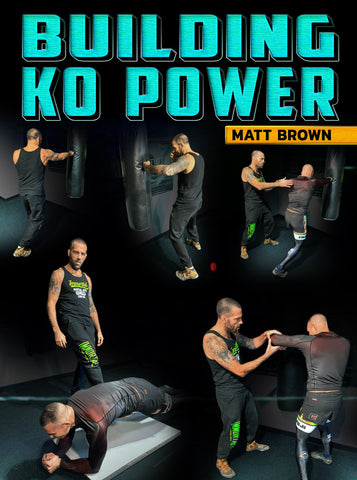Exploring the Timeless Principles of Muay Thai
Muay Thai, known as the "Art of Eight Limbs," is a martial art deeply rooted in tradition, culture, and a set of guiding principles that have shaped its evolution over centuries. In this blog, we'll delve into the fundamental principles of Muay Thai, their historical development, and how they apply to training in this revered martial art.
What this article covers:
- What Are the Most Important Muay Thai Principles?
- How Have the Principles of Muay Thai Developed Over Time?
- How Do the Principles of Muay Thai Apply to Training Muay Thai?
The connection between Muay Thai principles and the questions surrounding the lethality of the sport, its progressions, and the training without sparring lies in the foundational values that guide practitioners' journey in this martial art. Muay Thai principles emphasize respect, discipline, control, technique, and strategy, instilling a culture of safety, responsibility, and sportsmanship. These principles are deeply intertwined with the question of whether Muay Thai can kill, as they emphasize the importance of controlled training methods, proper technique, and mutual respect for one's training partners. Muay Thai progressions are built upon these principles, providing a structured framework for practitioners to develop their skills gradually and responsibly, while training without sparring allows individuals to focus on technique, conditioning, and mental preparation before engaging in live combat scenarios. By adhering to these principles, practitioners can cultivate their abilities in Muay Thai while minimizing the risks associated with full-contact sparring, ensuring a safe and fulfilling training experience.
Dive into the best Muay Thai information available at DynamicStriking.com!
What Are the Most Important Muay Thai Principles?
- Respect: Respect for one's opponents, trainers, and the art itself is paramount in Muay Thai, fostering a culture of humility, sportsmanship, and mutual respect.
- Discipline: Discipline is the foundation of Muay Thai training, requiring practitioners to adhere to a rigorous regimen of conditioning, technique drills, and mental preparation.
- Control: Control of one's movements, strikes, and emotions is essential in Muay Thai, allowing practitioners to execute techniques with precision and avoid unnecessary injuries.
- Technique: Technique is the cornerstone of Muay Thai, emphasizing proper form, balance, and execution of strikes, clinches, and defensive maneuvers.
- Strategy: Strategy involves understanding one's opponent, adapting to different fighting styles, and employing tactics that exploit weaknesses and capitalize on strengths.
How Have the Principles of Muay Thai Developed Over Time?
The principles of Muay Thai have evolved over centuries, influenced by historical, cultural, and socio-political factors. Originally developed as a form of hand-to-hand combat for soldiers in ancient Thailand, Muay Thai gradually transformed into a competitive sport and cultural tradition. Over time, the principles of Muay Thai have been refined and codified through training camps, competitions, and formalized rules and regulations, shaping the art into the dynamic and disciplined martial art it is today.
Dive into the best Muay Thai information available at DynamicStriking.com!
How Do the Principles of Muay Thai Apply to Training Muay Thai?
In training Muay Thai, practitioners apply the principles of respect, discipline, control, technique, and strategy to every aspect of their regimen. Respect is shown to trainers, training partners, and the art itself, creating a positive and supportive environment for learning and growth. Discipline is cultivated through consistent training, adherence to technique drills, and mental conditioning exercises. Control is honed through controlled sparring sessions, pad work drills, and shadow boxing, allowing practitioners to develop precision and accuracy in their strikes. Technique is refined through repetition, feedback from coaches, and the study of fundamental principles, while strategy is developed through analyzing opponents, studying fight footage, and adapting tactics to different scenarios.
Conclusion: The principles of Muay Thai serve as guiding tenets that shape the philosophy, training methods, and culture of this ancient martial art. By embracing respect, discipline, control, technique, and strategy in their training, practitioners honor the rich tradition and heritage of Muay Thai while striving for excellence and mastery in their practice. Whether in the gym, the ring, or in everyday life, the principles of Muay Thai offer valuable lessons in character development, personal growth, and the pursuit of excellence.
Did our blog meet your needs? You might also find our other guides helpful:
- A Comprehensive Guide to Muay Thai Stretches
- The Health Benefits of Muay Thai Training
- Muay Thai Training at Home
- Decoding Muay Thai Rankings
- The Ultimate Muay Thai Diet Guide
- The Essence of the Muay Thai Body
- A Deep Dive into Muay Thai Sparring
- Unveiling the Art of Muay Thai Weapons
- Decoding the Bang Muay Thai Ranking System
- Mastering Muay Thai Pad Work
- Unlocking the World of Muay Thai
- Unveiling the Muay Thai Oowee
- The Crucial Role of Muay Thai Warm-Ups
- Muay Thai Traditions
- Triumph Muay Thai











